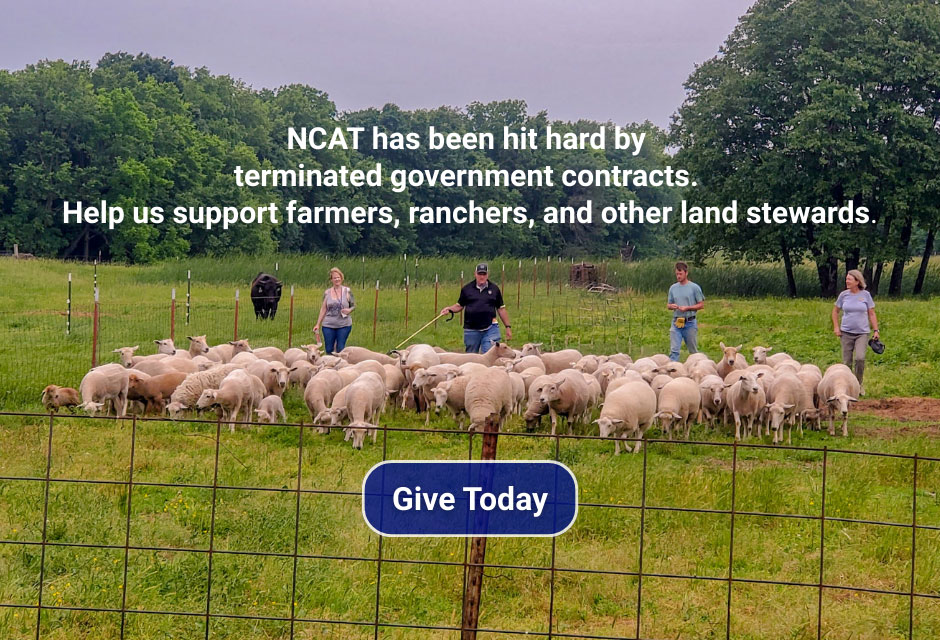Stipends Available for Beginning Farmers and Ranchers to Attend
The National Center for Appropriate Technology, along with nationally recognized organic leaders, will offer an Organic Academy Road Show (OARS) training at the Mansfield Convention Center in Great Falls, Montana, on December 6 and 7, 2023. Beginning farmers and ranchers in the Northern Great Plains will have the opportunity to explore regenerative, certified organic production systems for livestock, grains, oilseeds, and pulses.
Thirty stipends for beginning farmers and ranchers are available for up to $200 each to defray the costs of attending. There is no registration fee, but registration is required. Online registration is available at NCAT.ORG/EVENTS.
This event will host intensive training sessions and one-on-one technical assistance for beginning farmers and ranchers. Topics will include developing an organic system plan, the economics and markets for organic products, considerations when transitioning an operation, working with an organic consultant, and more. There will be time for questions and crowdsourcing ideas with experienced organic farmers and ranchers including Nate Powell-Palm, Doug Crabtree, Margaret Scoles, and others. Thursday’s session will conclude with a tour of an organic processing facility. The event schedule can be found here.
“This series of educational opportunities is not just another farming training,” said Doug Crabtree and Anna Jones-Crabtree of Vilicus Farms in Montana. “It is about leveraging training to further build the network of beginning organic producers who are farming and ranching at a scale that will have a tremendous impact on land stewardship across the Northern Great Plains.”
OARS attendees who are farmers and ranchers transitioning to organic can also apply for a complimentary two-day conference pass to the Montana Organic Association Conference, December 8-9, 2023, also at the Mansfield Convention Center.
The OARS sessions are part of the three-year federal Beginning Farmers and Rancher Development Program, Preparing a Resilient Future, in partnership with the Montana Organic Association, Northern Plains Sustainable Agriculture Society, Center for Rural Affairs, the Intertribal Agriculture Council, Nebraska Sustainable Agriculture Society, International Organic Inspectors Association, North Dakota State, and University of Wyoming.
The project targets medium to large-scale field crop and livestock operations, unlike most programs focused on beginning farmers and ranchers. This project was selected in a national competition under the Beginning Farmers and Ranchers Development Program funded through the USDA National Institute of Food and Agriculture.


